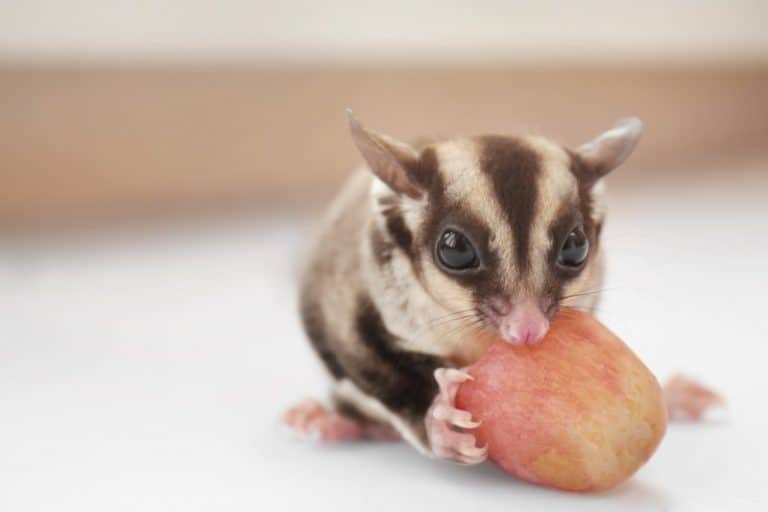Can Sugar Glider Eat Acidic Foods
Can Sugar Gliders Eat Acidic Foods?
If you are a sugar glider owner, you may be wondering about their dietary needs and whether or not they can eat acidic foods. Sugar gliders are small, omnivorous marsupials native to Australia, and they have specific dietary requirements to keep them healthy and happy. While they eat a variety of fruits, vegetables, and proteins, it’s important to understand which foods are safe for them and which should be avoided. In this article, we will explore whether sugar gliders can eat acidic foods and what you should consider when feeding them.
Understanding a Sugar Glider’s Diet
Before we delve into the topic of acidic foods, let’s first take a look at what constitutes a sugar glider’s diet. In the wild, sugar gliders primarily feed on sweet nectar, sap, insects, and the occasional small vertebrate. They are known to have a high metabolic rate, which means they require a diet that is high in protein and low in fat. In captivity, their diet should consist of a balance between proteins, fruits, vegetables, and supplements to ensure they receive all the necessary nutrients.
The Importance of Variety
When it comes to feeding sugar gliders, variety is key. Just like humans, these little creatures need a diverse range of nutrients to stay healthy. By providing a mix of different foods, you can ensure they receive all the vitamins, minerals, and antioxidants they need. A varied diet can also help prevent boredom and encourage foraging behavior, which is essential for their mental stimulation and overall well-being.
Introducing Acidic Foods
Now let’s address the question at hand – can sugar gliders eat acidic foods? While sugar gliders can tolerate a certain level of acidity in their diet, it is generally recommended to avoid feeding them highly acidic foods. This is because their digestive system is not equipped to handle excessive acidity, which can lead to gastrointestinal issues. Acidic foods can cause stomach upset, diarrhea, and even potential damage to their oral health.
Acidic Foods to Avoid
To help you make informed choices when it comes to feeding your sugar glider, here are some examples of acidic foods that should be avoided or fed in moderation:
- Citrus fruits (lemons, oranges, grapefruits)
- Tomatoes
- Pineapple
- Mango
- Strawberries
- Pomegranate
While these fruits may be healthy for humans, they can cause digestive issues in sugar gliders. It’s important to note that sugar gliders have different dietary needs and sensitivities compared to humans.
Alternative Fruits and Vegetables

Now that you know which acidic foods to avoid, let’s explore some alternatives that you can safely include in your sugar glider’s diet. These fruits and vegetables are low in acidity and can make a great addition to their meals:
- Apples
- Blueberries
- Kiwi
- Papaya
- Watermelon
- Zucchini
- Carrots
- Green beans
- Sweet potatoes
These fruits and vegetables are not only safe for sugar gliders to consume but also provide essential nutrients and promote good overall health. Remember to offer them in small, bite-sized pieces to make it easier for your glider to eat.
Feeding Guidelines for Sugar Gliders
To ensure your sugar glider is getting a well-rounded and nutritious diet, it’s important to follow these feeding guidelines:
- Offer a mix of fresh fruits and vegetables daily.
- Provide a source of high-quality protein, such as cooked chicken or insects, a few times a week.
- Include a calcium supplement in their diet to support their bone health.
- Make sure fresh water is always available.
- Avoid feeding them foods that are high in fat, salt, or sugar.
- Monitor their weight and adjust their portions accordingly.
By following these guidelines and avoiding acidic foods, you can help ensure your sugar glider remains healthy and happy.
Frequently Asked Questions
1.Can sugar gliders eat grapes?
Yes, sugar gliders can eat grapes in moderation. However, it’s important to remove the seeds as they can be a choking hazard.
2.Can sugar gliders eat bananas?
Bananas are safe for sugar gliders to eat and are a good source of potassium. Remember to offer them in small portions as treats.
3.Can sugar gliders eat citrus fruits?
It’s best to avoid feeding sugar gliders citrus fruits as they are highly acidic and can cause digestive issues.
4.Can sugar gliders eat chocolate?
No, chocolate is toxic to sugar gliders and should be strictly avoided.
5.Can sugar gliders eat avocado?
No, avocado is toxic to sugar gliders and should never be fed to them.
6.Can sugar gliders eat nuts?
While some nuts can be offered as occasional treats, they should not be a regular part of a sugar glider’s diet due to their high fat content.
Final Thoughts
When it comes to feeding your sugar glider, it’s important to prioritize their health and well-being. While they may be able to tolerate a certain level of acidity in their diet, it is generally best to avoid feeding them highly acidic foods. Instead, focus on providing a varied and nutritious diet that includes a mix of proteins, fruits, vegetables, and supplements. By understanding their dietary needs and making informed choices, you can ensure your sugar glider lives a long and healthy life. Remember to consult with a veterinarian experienced in sugar glider care for personalized advice and recommendations.







